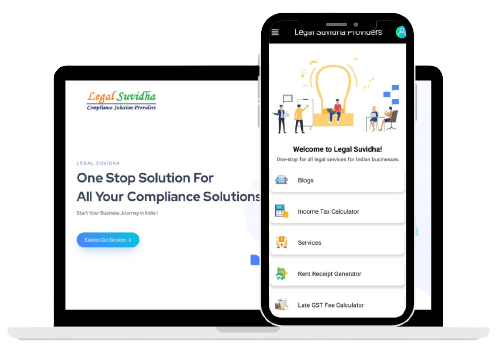ISO 27001: Information Security Management
ISO 27001: Information Security Management – A Simple Guide In today’s digital world, keeping sensitive information safe is more important...
The Right to Information (RTI) is a legal right conferred upon citizens of a country to access information held by the government or public authorities. It is an essential tool for promoting transparency, accountability, and good governance in a democracy. The RTI Act enables citizens to obtain information related to the functioning of government departments, policies, decisions, and financial transactions.

Happy Clients
Years Experience

Happy Clients
Years Experience
The Right to Information (RTI) is a fundamental human right that enables citizens to access information held by public authorities. The RTI Act provides citizens with the legal right to access information about the functioning of government departments, policies, decisions, and financial transactions. The RTI Act is a tool that empowers citizens to hold their government accountable for its actions and to participate in the democratic process.
The RTI Act requires public authorities to proactively disclose information about their functioning and provide information requested by citizens within a specified time frame. The Act also provides for the establishment of independent bodies such as Information Commissions to ensure the effective implementation of the Act and to adjudicate on disputes arising under it.
| Transparency | RTI promotes transparency and accountability in government activities. It allows citizens to access information on how the government functions, its decisions, policies, and activities. |
| Empowering citizens | RTI empowers citizens by giving them the power to hold public officials and institutions accountable for their actions. |
| Promoting good governance | RTI promotes good governance by ensuring that government institutions are transparent, accountable, and responsive to the needs of citizens. |
| Fighting corruption | RTI is an effective tool for fighting corruption by exposing corrupt practices and holding corrupt officials accountable. |
| Enhancing public participation | RTI promotes public participation in government decision-making by providing citizens with the information they need to participate effectively in the democratic process |
The following steps can be followed to file the RTI application online
Step 1: Visit the official website https://rtionline.gov.in and register by creating a username and password.
Step 2: Click on the ‘Submit Request’ on the top left corner of the website. A page describing the guidelines for filing RTI will pop up where you have to accept the terms and submit for further process.
Step 3: RTI application request form can be seen at https://rtionline.gov.in/request/request.php. The required information should be filled up by selecting the concerned department.
Step 4: In the next step, the individual has to write the information required by him within 3000 words in the ‘text for RTI application’ box. If the text exceeds the limit one can upload supporting documents.
Step 5: On submitting the application, a unique registration number is created for future reference.
Step 6: A nominal fee of Rs 10 has to be paid by internet banking or through Debit Card.
Step 7: On completing the payment process, the individual will receive an email as well as a message for successfully submitting the application.
The following steps can be followed to file the RTI application offline
Step 1: The individual must ensure the appropriate department to seek information from before filing the application. This implies that the individual shall decide whether the query relates to the municipality or state government of the central government.
Step 2: On ensuring the department to which the query is related, the individual can write or type the application in Hindi or English. An application can also be written in the local language if the query is related to the local authority.
Step 3: The address of the concerned authority shall be mentioned clearly in the application along with the individual’s name, address for communication, and place of residence.
Step 4: The individual should mention the query concerning which they are seeking information specifically. The queries must be related to the same subject for which the individual is seeking information. There is no limitation on the number of queries.
Step 5: A nominal fee is to be paid after preparing the application by cash or bank draft or a court fee stamp. If the individual falls under the category of Below the Poverty Line and is unable to pay the fee, proof of the same shall be attached with the application.
Step 6: On complying with all the above steps, the individual can finally send the application through post or personally hand it over to the concerned authority. An acknowledgment receipt is given to the individual after submitting the application.
1. A written application requesting information: The application should be in English or Hindi or in the official language of the area where the application is being made.
2. Application fee: The application fee, which varies depending on the state and mode of payment. It can be paid by cash, demand draft, or postal order.
3. Identity proof: A photocopy of any valid identity proof like Aadhar card, voter ID card, passport, driving license, etc. can be attached to the application.
4. Address proof: A photocopy of any address proof like Aadhar card, passport, driving license, electricity bill, telephone bill, etc. can be attached to the application.
It is important to note that some states may have additional requirements or forms to be filled out for filing an RTI request. Therefore, it is advisable to check the respective state government’s website for specific requirements before filing an RTI application.
According to the RTI law in India, in most cases, it mandates that information be provided in 30 days after the application is received by the PIO.
Once you file an RTI application online, you can check the status of your application by visiting https://rtionline.gov.in/request/status.php and giving the unique registration number.
One can file an appeal if their RTI application has not been answered within the prescribed duration. A first appeal can be filed addressed to the Appellate Authority with the name of the concerned department as well as the address. This makes it mandatory for the Appellate Authority to reply back within 30 days of the receipt of the appeal. However, one can file a further appeal to the Information Commission, Chief Information Commissioner or State or Central Information Commission on the failure of Appellate Authority to reply.
As per RTI Act, no fee has to be paid for the first appeal.
#answer
#answer
#answer
#answer
With a commitment to exceeding expectations and a passion for delivering results, choosing us means choosing a partner dedicated to your success.

We provide free of cost consultation and legal advice to our clients.

We are a team of more than 15+ professionals with 11 years of experience.


All our services are online no need you to travel from your place.

There are no hidden & extra charges* other than the quote/invoice we provide.

We aim that all our customers are fully satisfied with our services.

We value your time and we promise all our services are delivered on time.

We provide free of cost consultation and legal advice to our clients.
In this Journey of the past 14+ years, we had gained the trust of many startups, businesses, and professionals in India and stand with a 4.9/5 rating in google reviews.We register business online and save time & paperwork.
Trustindex verifies that the original source of the review is Google. Mayank & the Legal Suvidha team are fantastic. They really try to understand the business like insiders and don't give you templatized solutions. The staff are extremely supportive and go out of their way to help you. I would recommend Mayank to anybody new to the startup ecosystem!Trustindex verifies that the original source of the review is Google. Great experience with smooth process during the startup india registration Excellent coordination and teamwork with effective implementation in very limited timeTrustindex verifies that the original source of the review is Google. Sound expertise, good coordination, efficient and timely execution.Trustindex verifies that the original source of the review is Google. Good service and very helpfulTrustindex verifies that the original source of the review is Google. We had a great experience working with the LegalSuvidha team - we have used them for both our Pvt Ltd and LLP formation and their team has been very proactive, knowledgeable, prompt and helpful. They helped with all DSCs as well and couriered them to us. Very professional and thorough. We also got our Startup India , MSME registrations through them promptly. Overall highly recommended. Special callout to Nidhi, Saloni, Anjalin, Shreya and Priyanka for promptly helping us throughout the process.Trustindex verifies that the original source of the review is Google. I am writing to thank you for the quality of service provided by your company. We sincerely appreciate your efficient, gracious customer service, the level of detail and accountability you have demonstrated and the way you conduct business as a whole. A special Thanks to Ms Saloni for her great help throughout.Verified by TrustindexTrustindex verified badge is the Universal Symbol of Trust. Only the greatest companies can get the verified badge who has a review score above 4.5, based on customer reviews over the past 12 months. Read more


Explore more of our blogs to have better clarity and understanding
of the latest corporate & business updates.
ISO 27001: Information Security Management – A Simple Guide In today’s digital world, keeping sensitive information safe is more important...
Operating an online store comes with numerous benefits—but also regulatory obligations. Securing the right licenses and permits is essential to...
Directors shape a company’s governance and strategic direction. Among board members, Executive Directors and Non‑Executive Directors (NEDs) play distinct yet...
The Articles of Association (AOA) form the backbone of a company’s internal governance, setting out the rules, rights, and responsibilities...
Selecting the optimal legal form is a critical decision when launching your U.S. venture. Both LLCs and Corporations offer liability...
Expanding your U.S.-based business into India unlocks access to a vast consumer market, a skilled workforce, and cost advantages—but also...
Here are some answers to potential questions that may arise as you start your business.
Register your business, obtain necessary licenses, and fulfill tax obligations.
Consider factors like ownership, liability, and tax implications to choose from options like sole proprietorship, partnership, or company registration.
Choose a unique business name, obtain required IDs like Director Identification Number (DIN), and file incorporation documents with the Registrar of Companies (ROC).
Obtain GST registration, trade licenses, and any industry-specific permits required to operate legally.
Maintain accurate financial records, file tax returns on time, and adhere to the tax laws applicable to your business.
Yes, startups in India can benefit from various government schemes offering tax exemptions, funding support, and incubation facilities.
Secure patents, trademarks, or copyrights to safeguard your intellectual assets from infringement or unauthorized use.
Challenges include navigating bureaucratic hurdles, complying with complex regulations, and competing in a crowded marketplace.
Looking For More Information? Contact Us
Sign up to receive email updates on new product announcements, special promotions, sales & more.
Redefining the experience of legal services. Now all Professional Services in a Single Click !


Copyright © 2025 Legal Suvidha Providers LLP. All rights reserved.
